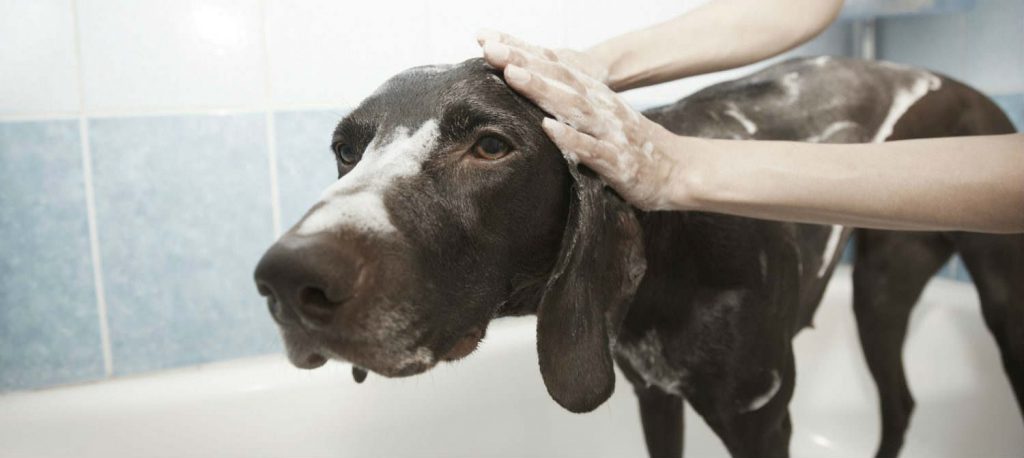Hi Jill,
Thanks for this question, it’s actually one of my favorites.
One of the most common reasons for a smelly dog is seborrhoea. This condition is an oil he secretion of the skin that creates a rancid odor. The reason I like this question so much is this is one of the conditions that is really not well addressed by veterinarians. I’ve seen clients that have been struggling with this for years without it really being properly identified by their veterinarian and properly dealt with.
Your answer is really simple. I think you’re expecting too much out of this product. You can’t expect a product that you apply locally to solve a generalized condition. Someone here is taking a shortcut. To solve significant seborrhoea you’re going to need an antiseborrheic shampoo. You need to bathe your dog in it, lather it up, let it stay on the skin for 10 to 15 minutes which is critical, then rinse it off. You should do this twice the first week and then you should start to see a dramatic improvement. Then you have to do it on a consistent basis determined by the severity of the condition. So you may need to shampoo once a week for a month and then you may be able to reduce it to once a month to control the condition. You can use the spot on product as a supplemental treatment but it alone is not enough to control this.
A really important factor here to realize is that something may be causing the seborrhoea. Seborrhoea could be primary, meaning that it’s just a disease your dog has. Often it’s caused by hypothyroidism so performing blood work and identifying whether this is going on could help you treat and solve this for the long term without having to do the work of shampooing on a regular basis. You could also look at supplementing your dog’s diet with a vitamin and omega-3 fatty acid product that will improve the health of the skin and coat.
I do love seeing these patients in practice because once I solve this problem for them and they realize how simple it was, the pet owner becomes very appreciative. It really improves the dog’s health, comfort and their odor. Seborrhoea can also contribute to skin infections from time to time so getting it under control can really impact their future health. I would recommend you speak to your veterinarian to get their advice about diagnosing and treating seborrhoea.
Good luck.
Dr. Clayton Greenway

